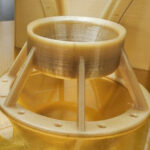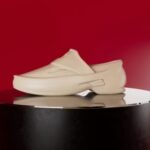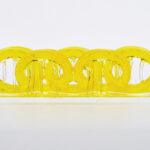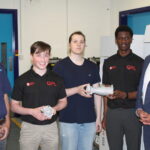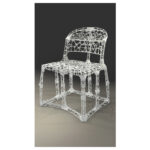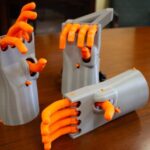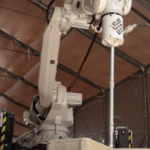Medical and surgical applications make up a growing share of the professional 3D printing market and some companies are leaning into that fact. German specialty chemicals company Evonik just released VESTAKEEP i4 3DF filament, a PEEK material that can be used in filament deposition 3D printers to make medical-grade implants.
Though it requires a high-temperature 3D printer to use, PEEK is a high-performance material that is not only strong but also biocompatible, making it a great choice for implants. It took a couple of years of development and testing but VESTAKEEP i4 3DF has met ASTM F2026 requirements, the standard that certifies that PEEK implantable medical devices are safe to use and manufacture. While there are several FDM 3D printing materials that are rated for medical uses, they’re only certified for limited contact, meaning they can only be in contact with tissue for 24 hours and cannot be implanted. Those materials are fantastic for braces and surgical guides but not permitted for use when someone needs a cranial implant.
And cranial implants are just what the doctor ordered according to Director of VESTAKEEP Medical, Marc Knebel, “For modern medical technology, the development of our first 3D-printable implant material opens up new opportunities for customizing patient treatments. Orthopedics and maxillofacial surgery are examples of areas where this could be applied.” i4 3DF is designed for temporary and permanent body contact. For that, factors beyond immediate biocompatibility are considered and important questions have to be asked, such as:
- Biostability – How does the material behave over time in the body? It’s imperative that the material not break down, decay, or corrode over long periods of exposure to tissue and bodily fluids.
- X-ray transparency – Can radiologists see through this material? Metal implants are great until the patient needs an X-ray and the implants completely block vision to a critical area.
- Ease of handling – How difficult is it to fabricate and repair the material? If a material is difficult to process and handle, that can hinder its performance in a surgical setting.
Of course, i4 3DF meets all of those requirements and then some. PEEK is an incredibly strong, lightweight, and durable material. It’s used in the aerospace industry for just those reasons. In order to meet the necessary ASTM requirements, Evonik’s i4 3DF PEEK is produced under cleanroom conditions and then passed through rigorous quality control measures that apply to medical materials. To help customers keep costs down, Evonik is also offering a “testing grade” of the filament that has the same processing and mechanical properties but without the documentation necessary to use as an implant. This allows surgeons and consultants to print functional prototypes at a discount.


